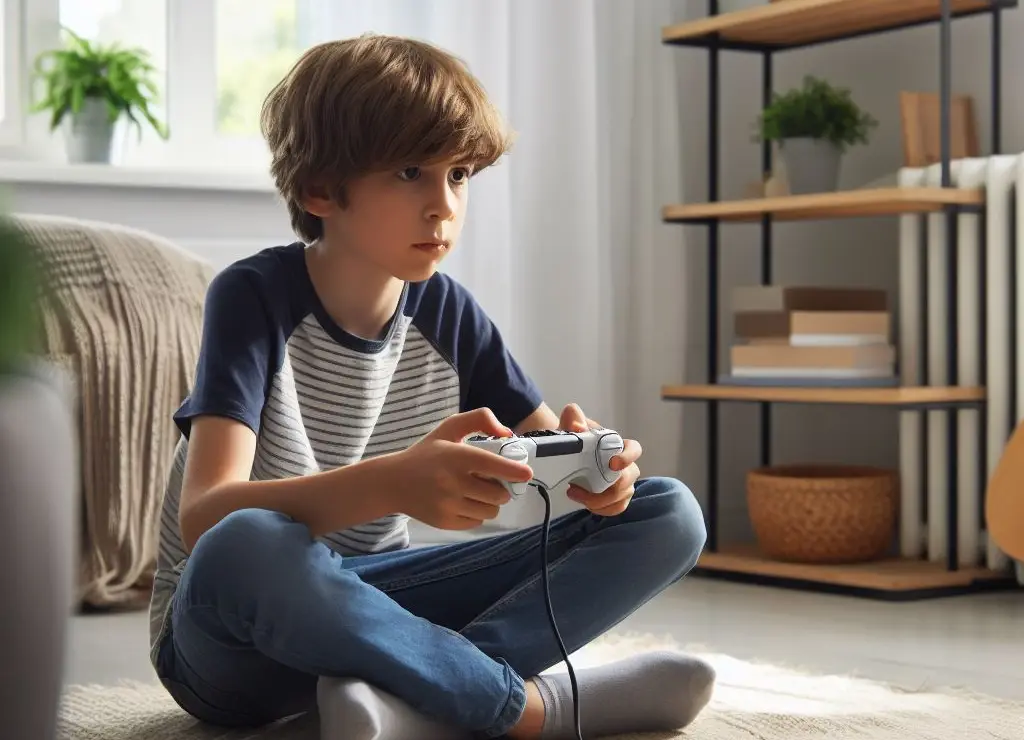Don't miss our FREE SHIPPING Offer - and up to 25% OFF! on selected items.

How to Leverage Your Kid’s Passion for Video Games
Gaming is one of the most popular hobbies for kids today. While parents often view their child’s video game obsession as mindless entertainment, there are ways to transform gaming into a valuable learning experience. With some guidance and creativity, you can leverage your kid’s passion for gaming to help them develop important life skills.
Set Healthy Gaming Limits
The first step is to set reasonable limits around gaming. While you don’t want to completely restrict access, it’s important to enforce a healthy balance. Some guidelines to consider:
- Limit gaming to 1-2 hours per day. This prevents it from dominating free time.
- No gaming before other responsibilities. Homework, chores, family time comes first.
- Take regular screen breaks. Step away from the console every 45-60 minutes.
- No gaming before bedtime. Shut down devices 1-2 hours before bed for better sleep.
Establishing these boundaries from the start prevents gaming from becoming excessive.
Shop new arrivals
-
7 Lumas in the Galaxy Unisex Pullover Hoodie
Price range: $67.90 through $72.50 -
Amazing Digital Circus All-Over-Print Canvas Backpack for kids. Three Sizes School bag
Price range: $39.00 through $43.00 -
Amazing Digital Circus Handle Backpack. Book bag for Kids / Youth
Original price was: $83.00.$62.50Current price is: $62.50. -
Ambush Roblox DOORS Entities Black Backpack
$64.95 -
Arcane Jinx Hawaiian pocket shirt. League of Legends Casual Gift for fans
Original price was: $48.00.$39.90Current price is: $39.90.

Help Them Pick Quality Games
Rather than letting your kid play any game they want, guide them towards high-quality games with educational value. Here are some things to look for:
- Problem-solving puzzles – Games like Portal challenge logic and spatial skills.
- Strategy games – Civilization builds planning, resource management skills.
- Programming games – Programming robots in games teaches coding basics.
- Artistic games – The Sims lets kids flex their creativity and design skills.
Choosing games with enriching elements makes screen time more productive. Do research to find age-appropriate options that align with your child’s interests and abilities.
Encourage Healthy Gaming Habits
Once appropriate games are chosen, instill habits that maximize learning opportunities. Here are some healthy gaming habits to enforce:
- No passive gaming – Don’t let them zone out. Ask questions and make them explain their strategies.
- Take breaks – Short breaks prevent burnout and give time to absorb what they’ve learned.
- Mix it up – Rotate through different game genres to develop a wider range of skills.
- Reflect afterward – Have them recap what they learned and how they can apply skills.
- Moderate chat – If playing multiplayer games, monitor chat and mute/report toxic players.
Setting these standards helps transform gaming from a brain-numbing activity into an enriching one.

Turn Gaming Knowledge Into Real-World Skills
A great way to add value to your kid’s gaming hobby is to connect it to real-life skills they can build on. Here are some ideas:
- Teach game strategy – Have them write a tutorial or teach you their favorite game to improve teaching abilities.
- Make it physical – For motion-controlled games, set up obstacle courses or races to get them active and problem-solving.
- Creative projects – Have them design game mods, make fan art, write storylines, or code simple mods.
- Game night – Use cooperative games to build teamwork and communication skills.
- Design games – Have them create board/card games from scratch to develop planning and logic skills.
Leveraging activities like these gives them a richer learning payoff from gaming.
Model Healthy Gaming Yourself
One of the most powerful things you can do is demonstrate a healthy gaming/life balance yourself. Don’t criticize gaming as lazy or unproductive. Instead, show them it can be done responsibly:
- Play together sometimes – Bond with them over cooperative games and model sportsmanship.
- Limit and balance your own gaming – Follow the same boundaries you set for them.
- Model tech-life balance – Unplug and engage in other hobbies too like family time, reading, and outdoor activities.
Seeing you integrate gaming into a full life shows them the right way to do it.
Conclusion
Leveraging your kid’s love of gaming may require more effort than eliminating it entirely. But with some guidance, it can become a fun activity that builds valuable skills when balanced within a healthy lifestyle. Establish limits, help them engage thoughtfully, integrate off-screen activities, and model balance yourself. With this approach, gaming can become an asset rather than a detriment to their development.






